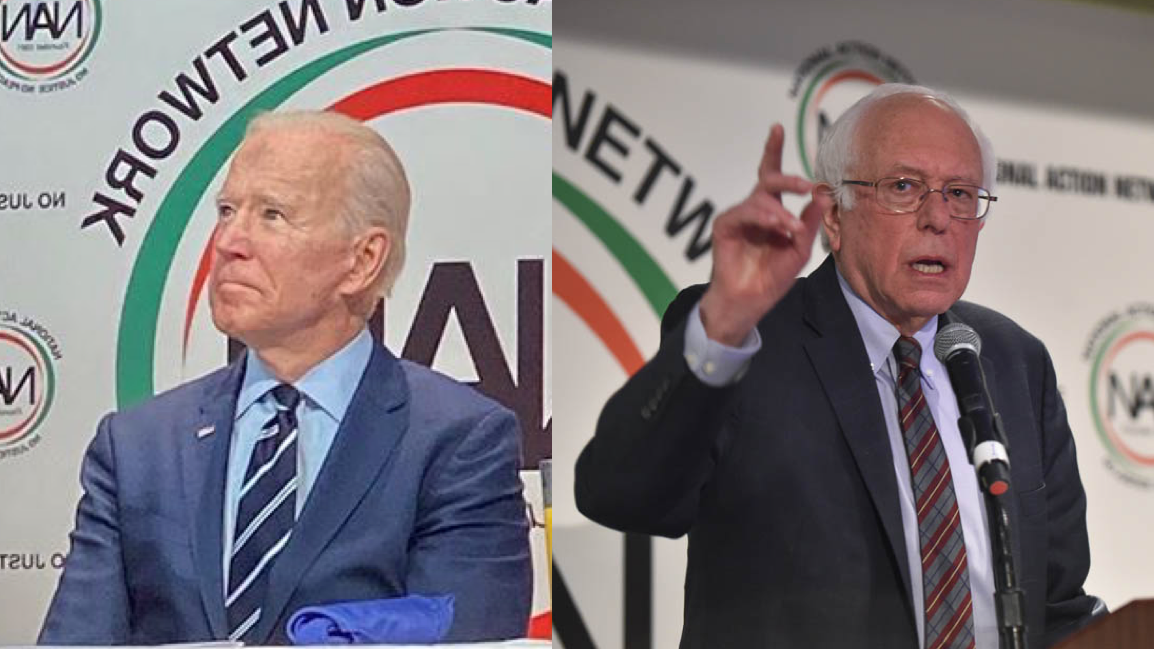2020 Election
News
The State of 2020 Democratic Presidential Primaries
—
(New York, NY) — The race to become the 2020 Democratic Presidential Nominee is well underway, with thirty out of fifty seven primaries and caucuses already having casted votes. As of now, there are only two remaining Democratic Candidates – Vice President Joe Biden and Senator Bernie Sanders – that are significantly competing for the remaining delegate votes.
In total, there are 3,979 pledged delegates voting to elect the Democratic nominee. If a democratic candidate earns 51% of the delegate votes, that candidate will become the Democratic nominee for the general election of the president of the United States. In the 2020 election year, that means running against Trump in the general election.
At NAN, we are actively engaged with voting rights and activating our community’s role in the US presidential electoral process. This post is the first in a series that will begin to cover topics related to voting rights and the 2020 Election.
How Political Primaries Work
At stake in each primary or caucus is a certain number of delegates. In primaries, there are generally two ways to win delegates – proportional affiliation, and winner-takes-all affliation – with each state and party choosing their own method.
Starting in the 2020 Election cycle, all Democratic primaries are choosing the proportional affiliation method to count delegate votes. This means that candidates win delegates votes in proportion to the number of counted citizens votes for each primary. If a candidate receives 70% of the population’s vote, then that candidate will receive 70% of the delegate’s vote.
Who are these delegates, and how do they come to hold this position? Delegates are usually people who are involved in their state’s politics. They may be volunteers, hold local official positions, or just be interested citizens. Learn more about how to become a delegate here.
In addition to normal delegates, states also put forward superdelegates, who are usually elected officials from the state. Unlike the delegates described above, Democratic superdelegates are free to support any candidate for the presidential nomination. Their votes are not necessarily based on the outcome of a primary or caucus vote.
The 2020 Democratic National Convention will be held July 13th through the 16th, when all the primaries and caucuses are over. The candidate with the most delegate votes will officially receive the democratic nomination.
Primaries Delayed Due to Coronavirus Pandemic
Both Louisiana and Georgia have decided to reschedule their presidential primaries in response to the coronavirus pandemic. Georgia will now hold its primary on May 19th (previously was scheduled for March 24th). Louisiana will hold its primaries on June 20th (rescheduled from April 4th), which is after the party’s approved window for holding primaries.
Maryland and Ohio have announced that they will postpone their primaries, but new primary dates have not been confirmed yet.
In addition, Georgia is adjusting dates for early voting.
Important Upcoming Dates
March 29th — Puerto Rico Democratic Primary
April 4th — Hawaii, Wyoming & Alaska Democratic Primaries
April 7th — Wisconsin Democratic Primary
April 28th — New York, Connecticut, Delaware, Pennsylvania, & Rhode Island Democratic Primaries
Remaining Primaries by State
If you live in the following states or US territory, your democratic primary is still upcoming. That means you can still make a difference in the outcome of the 2020 Election! This is an important year to stay involved and get into the action.
- Wyoming
- Alaska
- Hawaii
- Puerto Rico
- New York
- Connecticut
- Delaware
- Pennsylvania
- Rhode Island
- Guam
- Kansas
- Indiana
- Nebraska
- West Virginia
- Georgia
- Oregon
- District of Columbia
- Maryland
- Montana
- New Jersey
- New Mexico
- Ohio
- South Dakota
- Virgin Islands
- Louisiana
- Kentucky
Related Articles
Time to Vote in Florida, Arizona & Illinois: Polling Information for Super Tuesday